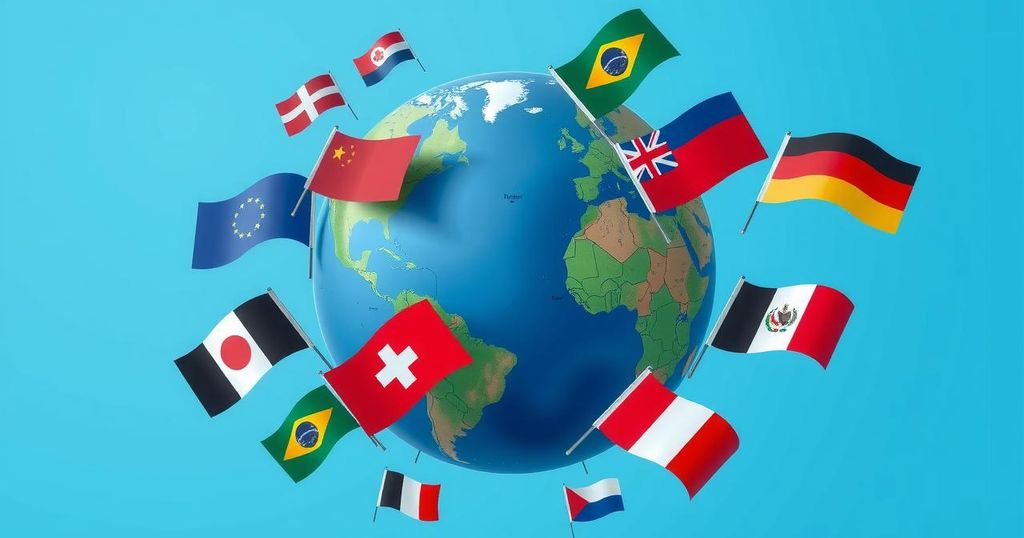Jamaica is navigating a complex diplomatic landscape, balancing economic interests from China with historical ties to the U.S. The nation faces pressures regarding Cuba and must reconsider its alliances, especially with Africa, to support its national development goals. Prime Minister Holness’s decisions could significantly influence Jamaica’s global positioning and economic prospects.
The significant diplomatic challenges facing Jamaica revolve around balancing long-standing alliances with emerging global powers, specifically the United States and China. Historically, Jamaica has maintained a robust partnership with the U.S., its largest trading partner, but Chinese investments via the Belt and Road Initiative have introduced added complexity to the situation. This influx of infrastructure funding has positioned China as a key benefactor in the Caribbean, which complicates Jamaica’s foreign policy strategies.
Conversely, Jamaica’s enduring relationship with Cuba—which has supported Jamaica through various crises, including the COVID-19 pandemic—faces strain due to U.S. allegations concerning human trafficking by the Cuban government. Jamaica’s foreign policy aims to foster multilateral partnerships and support economic growth, but these competing international interests create a challenging diplomatic landscape that requires heightened strategic decision-making to avoid negative repercussions.
This diplomatic predicament also draws parallels to past leaders, such as Michael Manley, who faced U.S. pressure for supporting Cuba amid geopolitical conflicts. Current Jamaican Prime Minister Andrew Holness appears to be under scrutiny for his lack of response to the pressures surrounding Cuba, especially compared to the more assertive approach taken by Barbadian Prime Minister Mia Mottley. This comparison has led critics to label Holness’s stance as “spineless and indeed treacherous” and underscores the call for Jamaica to explore alliances with rising global powers like Africa.
Interestingly, Jamaica has hesitated to join other Caribbean countries in endorsing the Partnership Agreement designed to strengthen economic ties between African nations and Caribbean Community (Caricom) members. Despite Afreximbank’s establishment in Barbados and a commitment to invest substantially in participating member states, Jamaica’s reluctance to join the initiative raises concerns about its economic strategy.
Moreover, the external pressures on Jamaica highlight the tension between reliance on U.S. trade and investment versus potential economic gains from Chinese initiatives. As forthcoming elections approach, Prime Minister Holness faces critical decisions about whether to prioritize Jamaica’s economic interests tied to China or to align with U.S. diplomatic expectations, especially amidst accusations against Cuba.
In navigating this complex political terrain, Jamaica’s leaders must carefully assess national interests and ensure strategies that protect the nation’s sovereignty while fostering relationships with both superpowers. The nation’s geographical positioning and historical alliances significantly influence its role in regional dynamics, advocating for sustained partnerships with both China and the U.S., as well as potential new alliances with African nations for broader economic development.
In summary, Jamaica is confronted with a delicate diplomatic balancing act between maintaining its historical ties with the United States and embracing the economic opportunities presented by China. The recent tensions surrounding Cuba and the need for strategic partnerships with African nations highlight the importance of reevaluating Jamaica’s foreign policy priorities. Ultimately, the decisions made by the Jamaican government will significantly impact the country’s future geopolitical and economic landscape.
Original Source: www.jamaicaobserver.com




